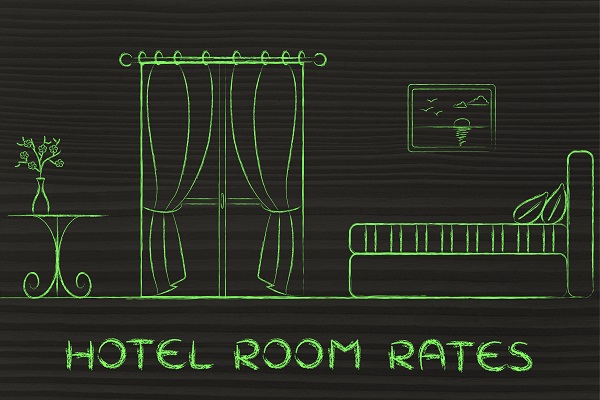
How can smaller hotel chains compete with mega chains?
Hotel guests are increasingly valuing the digital experience – often more than other amenities a hotel might offer – but how can smaller hotel chains implement the technology to compete with ‘mega chains’?
Derrick Lee, VP global & vertical accounts at ALE, shares his view on how new developments in digital communications technology are enabling smaller hospitality companies to embrace the digital age and enhance the overall guest experience by providing comprehensive wifi, customer service apps and guest feedback for analysis.
Today, it is rare to find a guest without at least one smart device. The need for wifi has become an industry standard requirement, as guests are keen to stay connected wherever they go. In fact, a recent survey showed that many guests favoured wifi access over complimentary breakfast and free parking.
It is this desire for connectivity that has led to guests placing increasing significance on the availability of wifi during their hotel stay – a simple demand, yet one that many small hotels lack the capacity to provide to a consistently high standard.
I believe there are three key technology developments that will determine whether smaller hotel chains can keep up with the continuous consumer-driven demands: for guests, comprehensive connectivity via wifi and the support for applications on guest devices to provide customer services and give them greater control over their stay, and for hoteliers, the ability to collect and analyse the data from guest usag to better understand their requirements.
Small hotels can now offer a full wifi enabled guest experience
Guests have been able to download concierge apps for some time – to find and view information such as the hotel directory, restaurant and room service menus, swimming pool and spa – but not been able to book any of these services directly from the app. But now new BYOD guest telephony apps are available, priced for the budgets of smaller hotel chains, that allow all these services to not only be viewed, but the app can be used to book a table in the restaurant, order a taxi, book a spa treatment or make a phone call using the hotel’s wifi and avoiding expensive international calling rates.
These e-concierge applications can be used by guests to book additional services in the hotel and nearby restaurants, lock and unlock their door, even personally tailor aspects of the in-room environment such as heating and lighting. Importantly for smaller hotel chains, staff workloads can be re-prioritised far more effectively through this guest empowerment.
Mobile apps can exploit this potential by allowing guests to use their mobile device as an extension of their room phone, receiving calls anywhere in the hotel. Hotels can create value added opportunities by offering service or external calls via guest devices on Wi-Fi. Employee mobility and efficiency benefit from this connectivity, such as with notifications sent via smart devices or smart room phones to reception with room status updates or to streamline processes and reduce occupancy disruption.
Any hoteliers doubting the value of these services should take note of research indicating ‘more than 60% of travellers prefer to purchase and reserve hotel guest services using mobile devices rather than face-to-face with hotel staff’.
The time is ripe
But many ageing hotel networks will struggle to provide a consistent Quality of Service for this new range of applications. Modern demands for bandwidth, multiple device connectivity and extensive connection range coupled with existing old telephony systems, have already begun to place strain on existing hotel systems.
Add to this the fact that the transition to IP communications is set to accelerate over the next few years, and switching to IP telephony throughout the hotel network makes sense. It provides benefits to both guest and hotel equally, with the ability to offer free internal and low cost external calls, all based on a network infrastructure for the future.
Look to the cloud
Smaller hotel chains can now compete with ‘mega chains’ by offering these services for modest outlay – using the cloud to deploy them. Cloud is reliable, cost-effective, low maintenance – and can be offered on a pay-per-use basis tied to occupancy rates. The result is a flexible, scalable solution that smaller hotel chains can easily afford.
All this needs to be integrated with a network management system that allows hotels to build for each guest ‘one profile, many devices’, manage each guest’s multimedia account, and retain that guest’s profile so that, in the now much more likely event of a re-booking, the hotel can provide a consistent level of personalisation. This personalisation can be improved by collating guest app usage data from booking, all the way through to checkout.
With these enhancements, hoteliers now have the unique opportunity to not only offer a smarter service for the mobile guest, but to turn each guest into a fully connected ‘smart guest’.
Derrick Lee is the VP Global & Vertical Accounts, APAC, at Alcatel-Lucent Enterprise.






